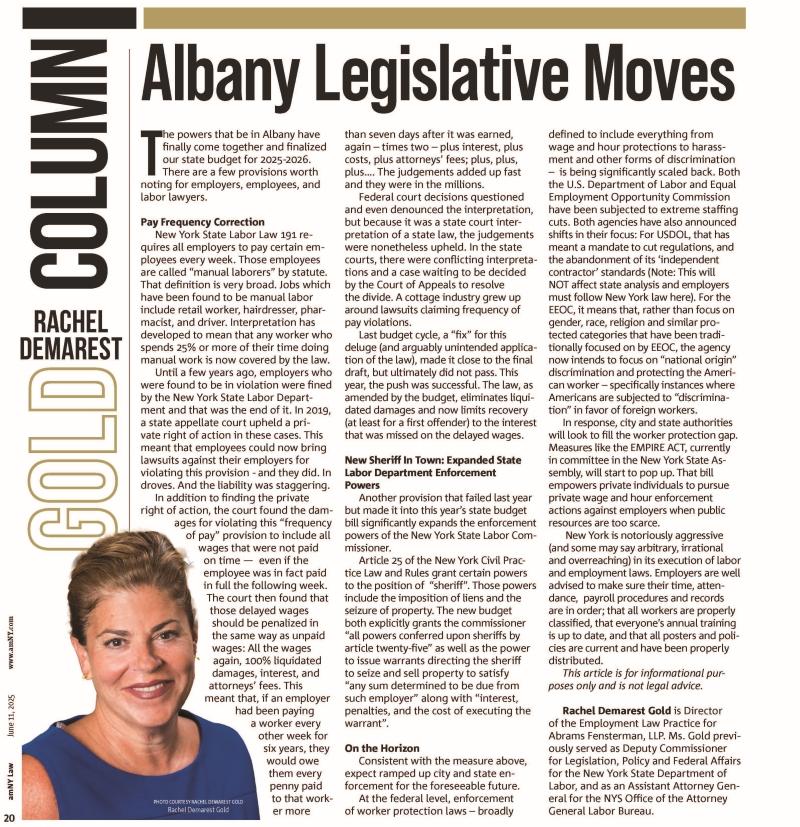By Sheryl Nance-Nash
Newsday
The last thing most people want to think about is the day they die. But, experts say, the best approach is to flip the script and embrace it. After all, doing so can often propel people to live their best lives.
“Planning for your last day on Earth is not something you really want to do, but such an important task. We never know when that day will be, so proper planning is essential,” says Denise Nostrom, a financial adviser and owner of Diversified Financial Solutions in Medford.
Acknowledging that someday he would have a date with death didn’t cause fear for Robert Hogan. What did, though, was the thought of not having things in place to take care of his family.
Nearly 30 years ago, when the first of his two children was born, Hogan started with life insurance and added a will that included a guardianship designation for his children in case he and his wife died at the same time. The 54-year-old Manhasset resident also has a health care proxy.
Hogan was encouraged and guided by his father to get his estate plan together. He was also motivated by the realities that he saw in his job as a funeral director.
“Death can be unexpected, tragic, come without warning,” he explains. “When nothing is in place the impact on loved ones is significant. As difficult as it is to think about death, don’t delay getting things in order. Think about those you leave behind.”
Being prepared and making those decisions about your life when you are of sound mind and health really brings peace of mind, not only for you, but also for your loved ones, who may not want to make decisions about your life if end-of-life documents do not exist, according to Nicholas Camargo, an estate planning attorney with Foster Swift Collins & Smith in Southfield, Michigan.
Nostrom agrees. “It is best to have things done the way you would want them to be done, rather than leave those choices to others.”
While everyone’s situation is unique, experts agree there are basic documents that should be in your estate plan — a will, living will, health care proxy and power of attorney. Taken one by one, they’re not so intimidating.
You need a current will
Everybody should have a will. It’s not only for the rich and famous. According to the recently published report, “Leaving a Legacy: A Lasting Gift to Loved Ones,” 45 percent of Americans they surveyed ages 55 and over didn’t have a will, and of those that did, 23 percent were out of date.
A will states your final wishes and gives instructions on how and to whom you wish to give your possessions. It takes away the guesswork that can be an additional burden when your loved ones are grieving. Understand, too, that a will isn’t a document you do, stick in a drawer and don’t think about.
“Make sure that your will remains current and continues to say what you feel it should say. Over time, wills need to be revised and you should remember to double-check to ensure it accurately reflects your wishes regarding finances and relationships,” says Henry Klosowski, a partner and chair of the trusts and estates practice at Moritt Hock & Hamroff in Garden City. Similarly, he says, you’ll want to keep your beneficiary designations on all financial accounts, insurance policies and other documents up to date.
You can name a guardian for any minor or disabled children in your will. Lastly, a will saves your surviving family from having to go through Probate Court, says Aviva Pinto, director of Wealth Advisory at Bronfman Rothschild in Port Washington. Without a will, the government will decide what happens to your belongings.
What a living will can do
Nothing can cause a family battle like trying to decide whether and how much medical care to administer if you’re unable to speak for yourself. A living will is a document that details your end-of-life wishes for medical care, such as organ donation.
“The living will should say that you do not want to be kept on life support,” says Martin Levine, chief financial officer for 4Thought Financial Group in Syosset, if that’s your wish.
Who will speak on your behalf?
You may reach the point that you can no longer make medical decisions for yourself. A health care proxy designates the person you want to make medical decisions on your behalf.
“Your primary care doctor or local hospital can help you complete the form. But you also need to make sure your proxy knows what you want, and what you want to avoid,” says Amy Berman, senior program officer with the John A. Hartford Foundation in Manhattan.
Help with your finances
Just as you may no longer be able to make health care decisions, the same goes for financial and legal matters. You need a power of attorney to designate who will handle them for you.
“A power of attorney is an absolute must. They can access and monitor financial accounts, as well as pay bills, apply for government benefits, create trusts, etc. Without a power of attorney, a family of an incapacitated person may have to seek a guardianship order from the court, which takes months and thousands of dollars in costs,” says Katya Sverdlov, an estate planning attorney with Sverdlov Law in Manhattan.
Make sure the power of attorney has essential information. Pinto points out some of what’s needed: “The names and contact information for your accountant, attorney and financial adviser. Your estate attorney will help pay the estate’s debts and distribute your assets to your beneficiaries. Your accountant can help with tax issues that arise after your passing. Your financial adviser can help your beneficiaries plan after your death.”
Leave no mess behind
For loved ones having a tough time dealing with the fact you’re gone, you can make it little easier by having what they might need in place.
“I tell all my clients to make a spreadsheet of all their important assets and how to access them after death,” says David Silversmith, a certified financial planner in Plainview. “This includes bank accounts, brokerage accounts, safe deposit boxes, etc. A spreadsheet like this makes it much easier for their heirs and the executor to close an estate. Hidden assets can sometimes wind up on New York State’s list of unclaimed property. Getting the assets from there can be very time-consuming and difficult.”
Don’t forget digital assets: Make a list of all your online accounts, usernames and passwords so your appointed person can access them.
Consider funeral preplanning
You can go to a funeral home and make all the arrangements in advance — even pay for it. If you decide you want to be cremated, you can plan that as well.
“I know someone that had five children and she bought five urns for each child to have with her ashes. Without planning, no one would have known what she wanted,” Nostrom says.
In addition, you can use the New York State burial designation form to appoint someone to control the disposition of your remains.
“Do communicate burial and funeral preferences and specific wishes about preferences like obituaries and language on gravestones,” says Ellyn Kravitz, a partner with Abrams, Fensterman, Fensterman, Eisman, Formato, Ferrara, Wolf & Carone in Brooklyn MetroTech.
Keep documents safe
All your important documents, like health, home, auto, life insurance policies, list of liabilities, titles to property and the like should be in a safe place that your loved ones are aware of.
Says Sverdlov, “A consultation with an elder law attorney is an absolute must. Every situation is unique. Some people have estate tax issues. Others have special-need relatives. Others have long-term care costs that must be addressed and planned for. Yet others have children from a first marriage that they want to make sure will be taken care of.
“There is no one solution to the problem of end of life — the important part is to plan early!”
Planning your emotional exit
Leslie Conner, an End of Life Doula and Reiki Master at the Prancing Peacock Yoga Studio in Langhorne, Pennsylvania, offers holistic end of life and bereavement support to families.
“Think about bedside plans. When it comes to the emotional side of planning for end of life, there tends to be a lot of assumptions. Talking about what should happen during the actual dying process helps take the guesswork out of it and allows loved ones to focus on connecting in a comfortable and meaningful way,” she says.
Choose interactive activities that will help ease the awkwardness visitors may feel when coming to your bedside to say goodbye. For instance, consider having a favorite book or collection of poems by the bed, giving them the option to read to you instead of sitting in silence. Or create a playlist on Pandora or Spotify to encourage those who visit to pick a song you can listen to together. Think about telling loved ones ahead of time to come with their favorite memory to share.
Give some thought to physical cues and how you’d like to communicate those with loved ones, such as whether you’d like people to hold your hand or sit in bed with you. When permission is given, and boundaries are laid out, everyone feels comfortable participating and is more likely to have a meaningful memory of their goodbye, as opposed to painful regret or fear over not knowing what to say or do.
Says Conner, “One of the most transformative techniques for processing end of life is to work on a legacy project with your loved ones. This can look like curating a collection of photos or treasured items for a scrapbook or memory box. It might involve going on a favorite walk, or selecting a new path, that your loved ones can keep using in the future. It can be a playlist of your favorite music, a series of letters, or even tattoos!
“Having a meaningful connection to the deceased is a key factor in successful grieving. The actual collaboration on the project also encourages connection and allows everyone to focus on the love holding the relationship together, instead of the loss.”





